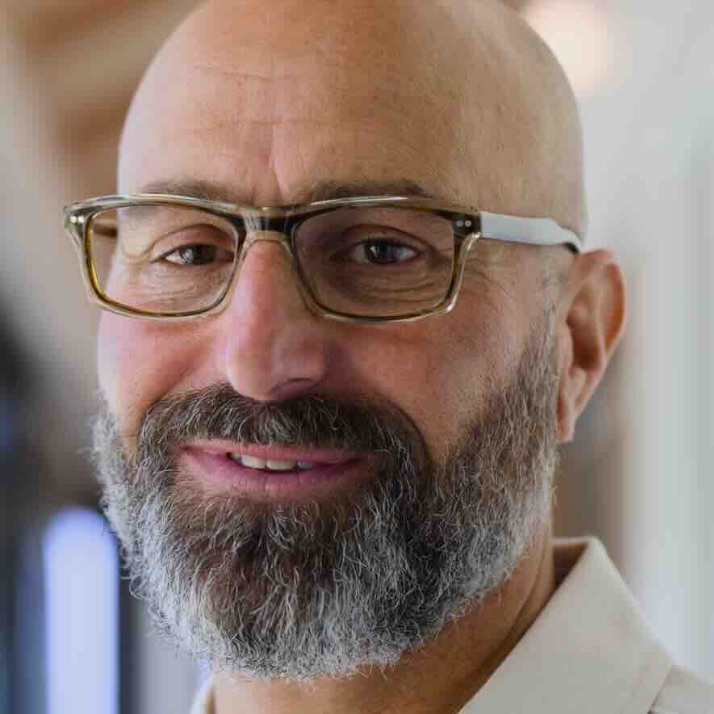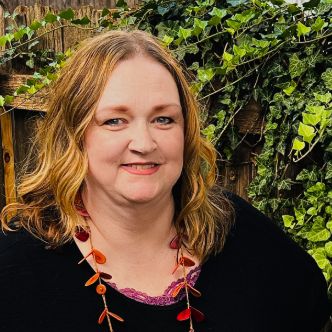Everyday Impact of Post-Traumatic Stress Disorder (PTSD)
Post-Traumatic Stress Disorder (PTSD) can make everyday tasks feel heavy—you might be exhausted at work after a night of bad dreams, or get thrown off by a slammed door or an ambulance siren on I‑70. You may find yourself avoiding crowded spots like the City Market, the Power & Light District, or a packed Chiefs game because your body stays on high alert. Driving past certain places in Kansas City or hearing summer fireworks and Midwest thunderstorms can bring up memories you didn’t choose, leaving you tense or jumpy. At home, it can strain relationships—snapping at someone you love, canceling plans on the Plaza, or pulling away because it feels safer than trying to explain.
How to Recognize Post-Traumatic Stress Disorder (PTSD)
- Intrusive memories or nightmares about a past trauma that pop up during everyday moments, like while riding the KC Streetcar or hearing a helicopter over Midtown.
- Avoiding places, people, or activities that remind you of what happened—for example, skipping Chiefs or Royals games, First Fridays, or certain routes on I‑70/I‑35 because they feel overwhelming.
- Feeling on edge or easily startled, especially with loud sounds common around town—sirens, construction noise, fireworks, or spring thunderstorms—and having trouble relaxing afterward.
- Changes in mood or thinking, such as feeling numb, guilty, or detached from friends and family, or losing interest in things you used to enjoy, like neighborhood barbecues or trips to the Plaza.
- Sleep and concentration problems that make work, school, or daily tasks harder—lying awake, restless nights, or difficulty focusing even on simple errands.
Contributing Causes and Risk Factors
Post-Traumatic Stress Disorder (PTSD) can arise from a mix of factors, including biological influences like genetics, brain chemistry, and how the nervous system responds to stress. Psychological contributors can include previous trauma, ongoing stress, and co-occurring conditions such as anxiety or depression, which can shape how someone processes difficult experiences. Environmental factors—like exposure to violence, accidents, disasters, or community stressors in and around Kansas City—can also increase risk. Post-Traumatic Stress Disorder (PTSD) is multifactorial and never a personal weakness; understanding these contributors can reduce stigma and support healing.
Treatment and Recovery Options
Evidence-based therapies for Post-Traumatic Stress Disorder (PTSD) include Cognitive Processing Therapy (CPT), Prolonged Exposure (PE), Eye Movement Desensitization and Reprocessing (EMDR), and trauma-focused CBT. These treatments help you safely revisit and reprocess traumatic memories, reduce avoidance, and challenge unhelpful beliefs so symptoms lose their intensity and control. Many people also benefit from SSRIs (such as sertraline or paroxetine) to decrease anxiety, hyperarousal, and sleep problems while therapy does the deeper work. Combined approaches—therapy plus medication—often speed relief and improve day-to-day functioning. Skilled clinicians in Kansas City routinely use these proven methods, and recovery is realistic and achievable.
Kansas City offers strong support systems to keep you moving forward: NAMI Kansas City peer groups and family education, MOCSA services for trauma survivors, and outpatient care at Truman Medical Centers/University Health, Swope Health, Samuel U. Rodgers, Wyandot BHN, and Johnson County Mental Health. Veterans can access specialized Post-Traumatic Stress Disorder (PTSD) care through the Kansas City VA Medical Center, with options for group therapy and evidence-based treatments. Many providers offer telehealth and sliding-scale fees, and community centers host mindfulness classes and trauma-informed yoga to build coping skills. Add self-help strategies like regular exercise on local trails and parks, grounding techniques, and a consistent sleep routine, and reach out now to schedule an appointment or join a group.
Why Professional Guidance Matters
Working with a licensed clinician for Post-Traumatic Stress Disorder (PTSD) ensures evidence-based, trauma-informed care and safety as you process difficult experiences. Licensure signals rigorous training, accountability, and quality standards, whether you meet in person or via telehealth. A professional can also help you navigate insurance coverage so treatment is accessible and affordable. MiResource helps people in Kansas City filter for licensed, in-network providers, including those offering telehealth.
Where to Begin Your Therapist Search in Kansas City
Start by entering “Post-Traumatic Stress Disorder (PTSD)” in MiResource’s directory to see therapists in Kansas City who focus on trauma care. Narrow your options by filtering for specialty, preferred therapy approach (like EMDR or CBT), insurance accepted, language, real-time availability, and your Kansas City neighborhood. Read profiles to compare experience with Post-Traumatic Stress Disorder (PTSD), treatment styles, and logistics such as telehealth or in-person sessions. Remember, the most important factor is personal fit—choose someone you feel comfortable with and confident about. If the first match isn’t perfect, adjust your filters and keep refining. Explore the MiResource directory now to find the right Post-Traumatic Stress Disorder (PTSD) therapist in Kansas City.
Local Support and Community Connections
Kansas City’s bi-state community includes large populations of veterans and first responders, immigrant and refugee families in the Historic Northeast and KCK, and residents impacted by community violence on the East Side—all factors that can shape Post-Traumatic Stress Disorder (PTSD) symptoms and recovery. Seasonal tornado sirens, fireworks around big games, and construction noise can be triggering; faith communities and neighborhood associations often serve as trusted entry points to care. Getting to appointments can be easier along the MAX bus corridors (Troost MAX, Prospect MAX, Main MAX) and the KC Streetcar from the River Market to Union Station (expanding toward UMKC), while traffic on the Downtown Loop and I-35/I-70/I-435, plus limited late-night bus service, can complicate access from the Northland, South KC, and Johnson County; consider clinics near transit or telehealth if you’re crossing state lines.
Local Post-Traumatic Stress Disorder (PTSD) supports include Swope Health Behavioral Health (Central/Troost), Truman Medical Centers/University Health (downtown and Lakewood), Saint Luke’s on the Plaza, The University of Kansas Health System in Midtown/Rosedale, Children’s Mercy (pediatric trauma), and the Kansas City VA Medical Center and the KC Vet Center for veterans. Community-based options include MOCSA for sexual-assault trauma, Rose Brooks Center for domestic violence, The Family Conservancy (KCK) for trauma-informed therapy, Wyandot Behavioral Health Network (KCK), Johnson County Mental Health Center, Tri-County Mental Health (Northland), ReDiscover (Jackson County), and Samuel U. Rodgers Health Center (Northeast) with culturally responsive care for newcomers; agencies like Della Lamb, JVS, and Catholic Charities offer refugee-focused trauma support. In an emergency, call 911; for suicidal thoughts or crisis, call or text 988. Major ERs with psychiatric resources include University Health–Downtown, KU Health System, and Saint Luke’s; many clinics offer evening hours and sliding-scale or Medicaid-friendly services.
If You Need Help Right Away
Seek emergency help if you have suicidal thoughts or a plan, self-harm, violent or unsafe behavior, intense flashbacks or hallucinations, severe panic, blackout/dissociation, overdose or heavy substance use, or can’t care for yourself. Call 988 (call/text); Johnson County Mental Health 24/7 Crisis Line 913-268-0156; Missouri Access Crisis Intervention (Kansas City region) 888-279-8188; ReDiscover Crisis Line 816-966-0900. You can also go to the nearest ER: University Health (Truman) 816-404-1000, Saint Luke’s Hospital of Kansas City 816-932-2000, Research Medical Center 816-276-4000, or The University of Kansas Health System 913-588-5000. In Kansas City you can request Mobile Crisis Response via 988, Johnson County Mobile Crisis (913-268-0156), or ReDiscover Mobile Crisis (816-966-0900); if symptoms are life-threatening, call 911 or go to the closest hospital, and use nearby urgent care centers if you need same-day, non-emergency support.
Questions You May Have
1. What does living with Post-Traumatic Stress Disorder (PTSD) feel like?
It can feel like being on edge, easily startled by loud noises like sirens or fireworks, and worn out from always scanning your surroundings. Some days you might avoid crowds at the Plaza or take the long way to skip places that bring up hard memories, while other days feel more manageable. Sleep can be restless, concentration hard, and mood swings can make work or time with friends tougher than you’d like. Everyone’s experience is different, and if this sounds familiar in Kansas City, you’re not alone and support is available.
2. How do professionals diagnose Post-Traumatic Stress Disorder (PTSD)?
In Kansas City, Post-Traumatic Stress Disorder (PTSD) can be diagnosed by licensed mental health professionals such as psychologists, psychiatrists, clinical social workers, and licensed counselors; primary care providers can screen and refer. The process usually involves a respectful conversation about your experiences and symptoms, brief questionnaires, and comparing what you share to DSM-5 criteria while ruling out other causes. You won’t be pressured to share details you’re not ready to discuss—your comfort and pace guide the evaluation. The goal is a collaborative, nonjudgmental understanding so you and your clinician can decide on the best next steps together.
3. What treatment options usually help with Post-Traumatic Stress Disorder (PTSD)?
Effective, evidence-based treatments for Post-Traumatic Stress Disorder (PTSD) include trauma-focused psychotherapies such as Cognitive Processing Therapy (CPT), Prolonged Exposure (PE), and Eye Movement Desensitization and Reprocessing (EMDR), as well as SSRIs when medication is appropriate. Many people also benefit from skills-focused therapies like trauma-informed CBT and supportive group therapy. Care is personalized—your therapist will tailor the approach to your symptoms, goals, and readiness, and adjust as you progress. Recovery is possible, and Kansas City has providers who can help you explore options and find a plan that fits you.
4. How do I explain my Post-Traumatic Stress Disorder (PTSD) to others?
It’s your choice what to share and with whom—start small, use simple language (e.g., “I have Post-Traumatic Stress Disorder (PTSD), which means certain triggers can overwhelm me”), and pick a time and place in Kansas City that feels safe. With friends and family, you can name what helps during tough moments (quiet space, a short walk, checking in) and what doesn’t (surprises, loud environments). With coworkers, keep it practical: you might say you’re managing a health condition and ask for specific supports like clear agendas, written follow-ups, or a brief break if triggered. Set boundaries by saying, “I’m not ready to talk about details,” or “Please don’t ask me about my trauma,” and redirect to how they can support you now. You deserve to share in ways that protect your well-being and make you feel seen and respected.
5. What first step should I take if I think I have Post-Traumatic Stress Disorder (PTSD)?
Start by noticing your symptoms and how they affect your daily life—jot down triggers, patterns, and what helps. Reach out to a licensed mental health professional for an initial evaluation, and use the MiResource directory to find Post-Traumatic Stress Disorder (PTSD)-informed therapists in Kansas City who fit your needs. If reaching out feels hard, talk to a trusted friend or family member who can support you and help make that first appointment. Take one small step today—send a message, make a call, or book a consultation—to begin feeling safer and more in control.













